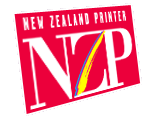Shenzhen Polytechnic, based in Guandong province in southern China and founded in 1993, caters for over 24,000 students with multiple colleges and courses covering a range of vocational and academic subjects.
The School of Media and Communications has 55 professors and a bevy of kit from Heidelberg, Agfa, Kodak and others. Of the several thousand students who graduate from the school each year, 99 per cent find work in the printing and associated industries. We recently presented ISO 16759 (calculating and communicating the carbon footprint of print media products) to a group of several hundred students and got a quite astonishing response.
These students seem to know much more about environmental standards than is healthy in young people. They understood the importance of reducing environmental impacts and of tools that help us to measure it. How many people reading this blog know what ISO 14064 is for? These Chinese youngsters at Shenzhen Polytechnic know that it is a tool for quantifying and communicating an organisation’s Greenhouse Gas emissions. They were keen to understand how ISO 16759 relates to this standard.
We were also asked how ISO 16759 could be used to design a carbon calculator for different sectors of print. Does it provide a good outline? Can it be followed when designing a calculator? These were equally astonishing questions and ones that are easy to answer. Yes! So keep a look out for ISO 16759 compliant carbon calculators coming from China sometime soon.
The engagement of the people at this event was surprising and unexpected. The audience was a group of students who probably got extra credit for pitching up. However having shown up to the seminar, once there they were determined to get the most out of their afternoon. Contrast this to Western print colleges where, with a couple of notable exceptions such as Malmö Hogskola in Sweden, print courses and student engagement are in decline. We have been told that this is because “industry doesn’t need printers anymore”. We cannot accept such a pessimistic view, and fortunately for print that view is far from the reality in China.
Part of our purpose in the visit to Shenzhen Polytechnic was to establish liaisons between Shenzhen Polytechnic, Malmö Hogskola and the London College of Communications. It’s still very early days but the idea is to encourage cross-fertilisation of ideas and to foster student exchange across all areas of print and media, including environmental initiatives. The enthusiasm of Chinese students for environmental standards is wonderfully encouraging. Let’s hope it eventually translates into enthusiasm for reducing environmental impacts, in print and elsewhere in industry.
– Laurel Brunner
This blog is yours to use if you want, as long as you fully credit the Verdigris supporters who make it possible: Agfa Graphics (www.agfa.com), Digital Dots (www.digitaldots.org), drupa (www.drupa.com), EFI (www.efi.com), Fespa (www.fespa.com), Heidelberg (www.uk.heidelberg.com), HP (www.hp.com), Kodak (www.kodak.com/go/sustainability), Mondi (www.mondigroup.com/products), Pragati Offset (www.pragati.com), Ricoh (www.ricoh.com), Splash PR (www.splashpr.co.uk), Unity Publishing (http://unity-publishing.co.uk) and Xeikon (www.xeikon.com).







